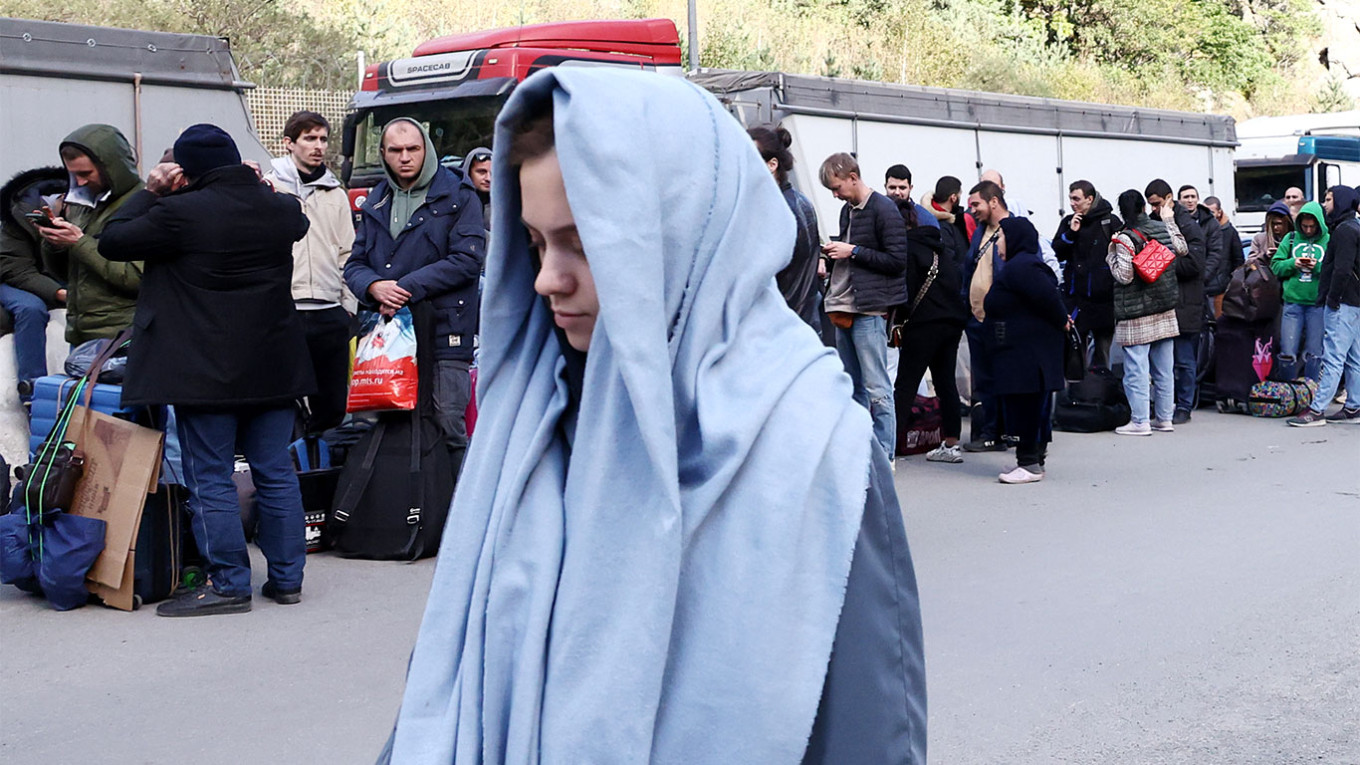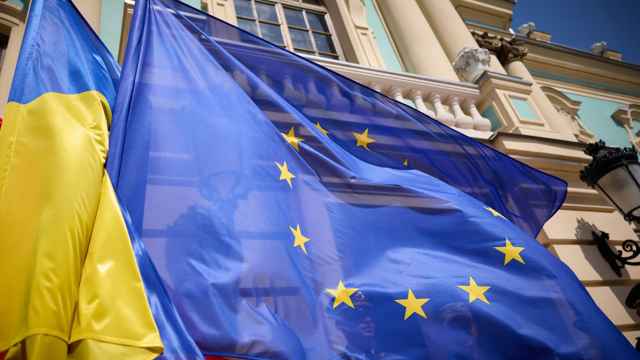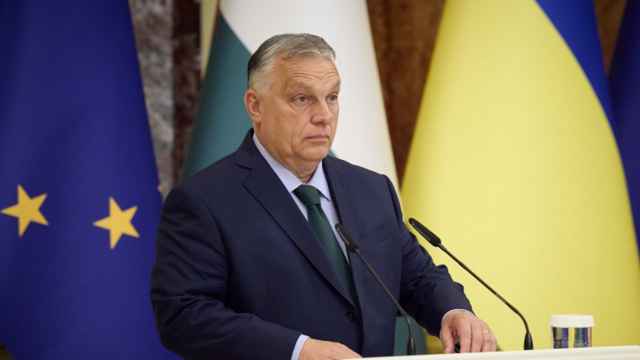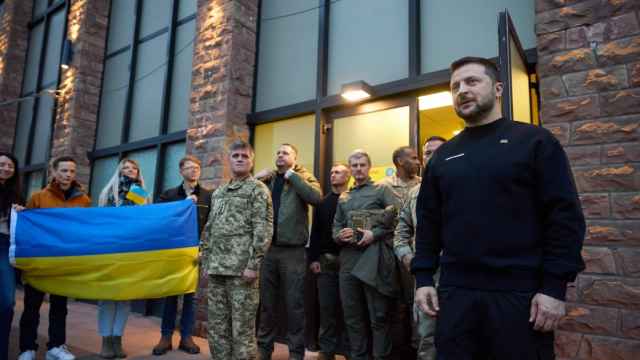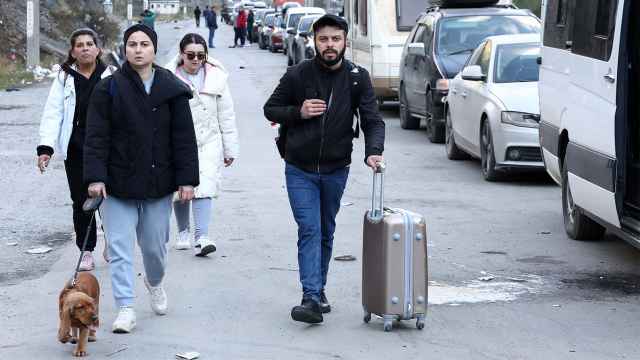Melania has been waiting 10 months for an answer to her request for political asylum that she filed after fleeing to Lithuania in the weeks after her home country, Russia, launched its invasion of Ukraine.
Once optimistic, anti-war Russians like Melania are increasingly downbeat about their prospects of finding long-term refuge in the European Union.
“I have no idea if they will give me asylum,” said the 21-year-old sales manager.
“I entered the country illegally through Belarus, which will either act in my favor or against it.”
The number of EU asylum applications filed by Russian citizens almost tripled last year as hundreds of thousands of Russians opposed to the war in Ukraine or seeking to avoid mobilization went abroad.
But many of those applications are still pending in what some asylum-seekers interviewed by The Moscow Times said they feared was an attempt to delay rejection until the war’s end.
Some applicants worry that, if refused asylum, they could be sent back to Russia, where they could face jail for their anti-war views or be drafted into the Armed Forces.
“At least eight of my asylum-seeking acquaintances here are also from Russia and I don’t know anyone who has been accepted,” Melania told The Moscow Times.
In the first eight months of the war, the EU logged 8,820 first-time asylum applications from Russians — up from 3,050 applications in the same period of 2021.
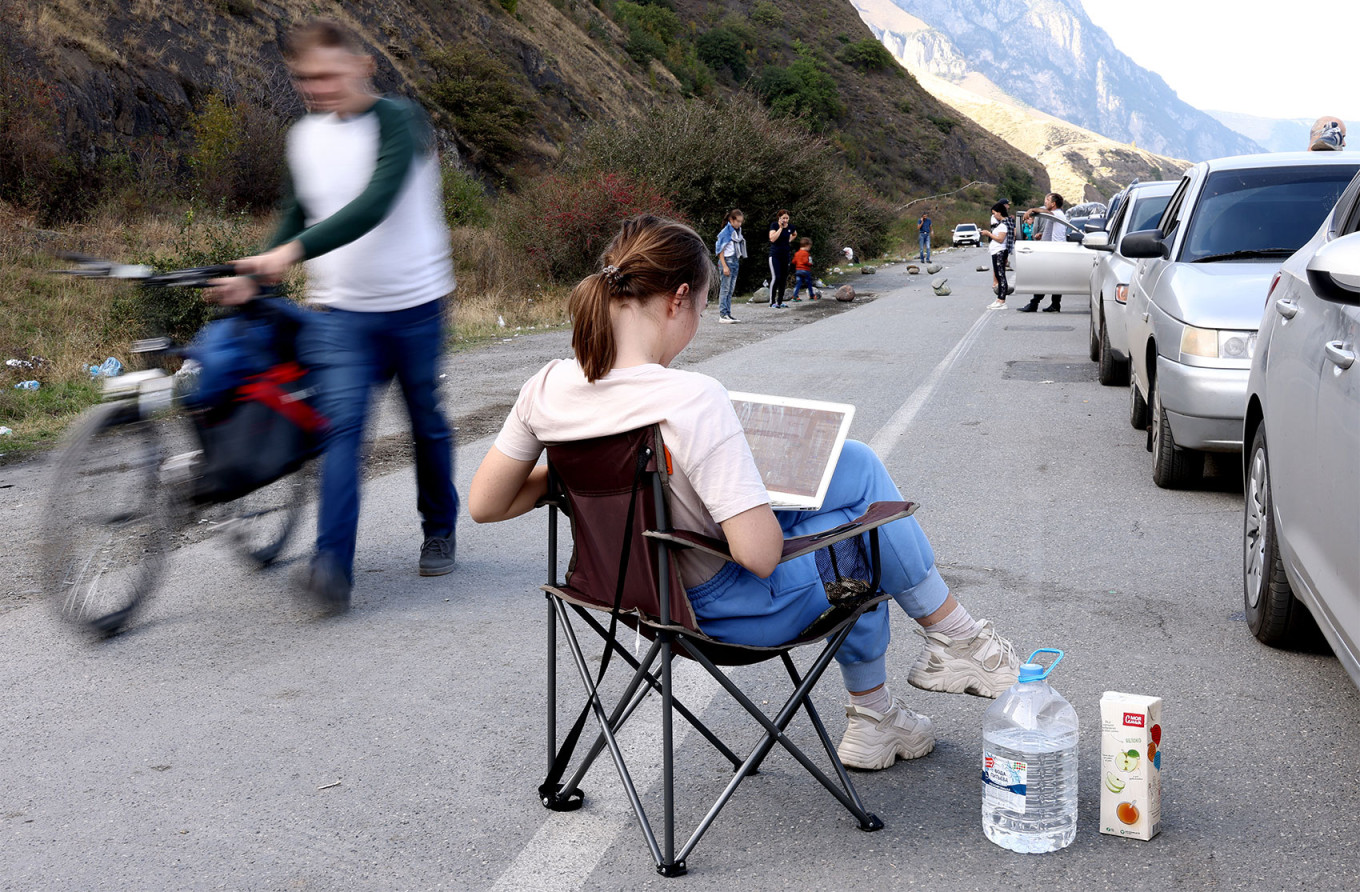
Different EU countries have taken their own approaches to Russians fleeing the war, with the Baltic states as well as Finland and the Czech Republic imposing the strictest measures, including banning entry to Russians with tourist visas.
“Lithuania will not be granting asylum to those who are simply running from responsibility. Russians should stay and fight. Against Putin,” Lithuanian Foreign Minister Gabrielius Landsbergis tweeted after the Kremlin announced a “partial” mobilization in September that saw tens of thousands of Russians head for the borders.
A Russian man who opposes the Ukraine war was reportedly refused asylym in Lithuania last week after attempting to leave a train to the Russian exclave Kaliningrad, according to media reports.
Even before the war, EU asylum application processes were known to be notoriously slow, with applicants of all nationalities often waiting a year or more for an answer.
“There are rumors circulating, coming from some people’s lawyers, that Russian asylum applications will probably be denied once the war stops — so we are just waiting,” said Andrei, 22, who applied for asylum in Croatia last year.
He said he knows about 10 other Russians in similar positions.
In addition to many hours of interviews, asylum applicants also face an unspecified timeframe.
“The most difficult thing is that no one gives you any deadlines,” said Russian anti-war activist Natalia Kiseleva, 39, who was granted political asylum in Germany last year after 10 hours of interviews over 9 months.
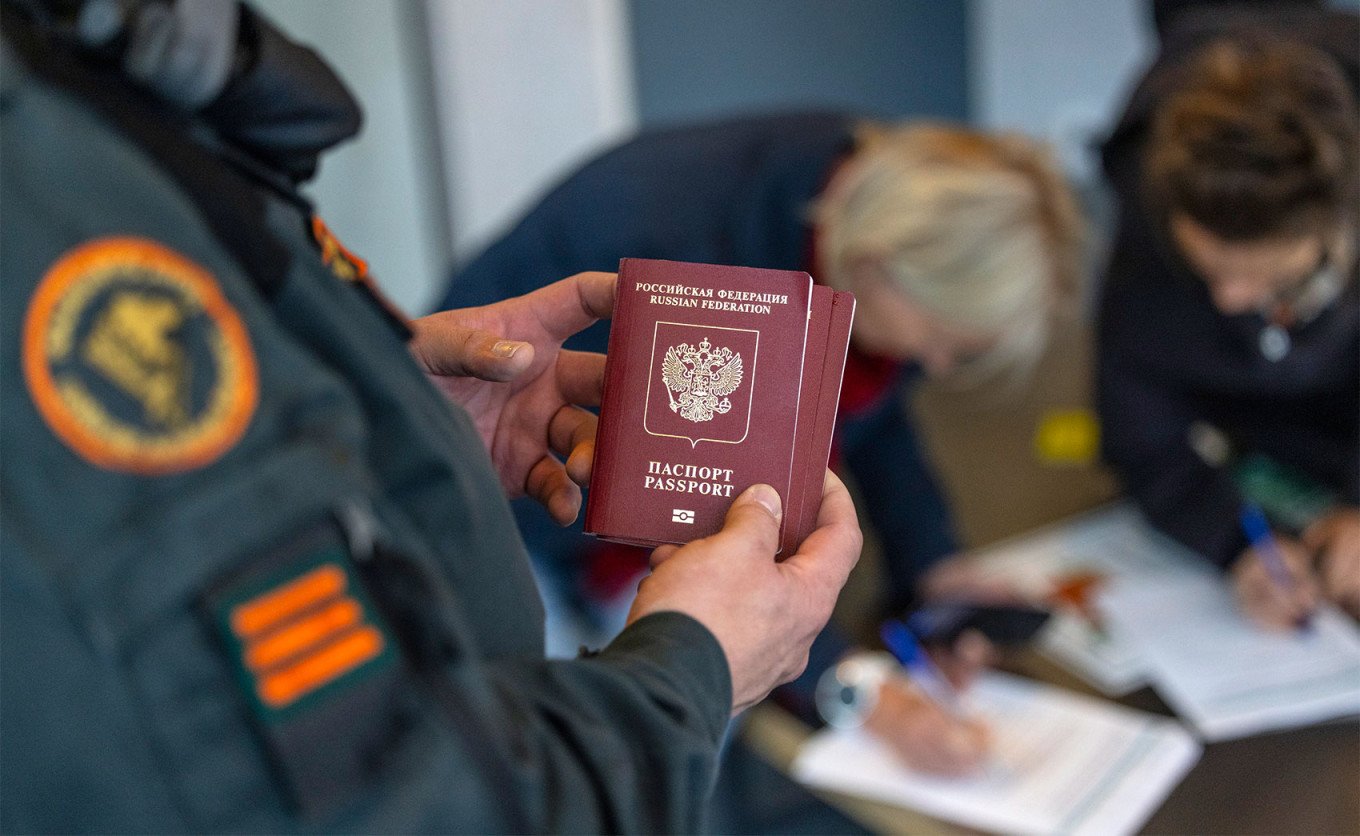
“I would not advise people who don’t have a thick skin to undergo this process of asylum — it is scary at times,” Andrei in Croatia told The Moscow Times.
Ivan Zupan, a lawyer with the ZBA Lawyers firm in Croatia, said he has been handling an increasing number of Russian asylum requests since the start of the war.
“They are doing more detailed background checks than before,” he said when asked about Croatia’s policy toward the Russian arrivals.
Among those who reportedly tried to gain asylum in Croatia are a large number of Chechens, who crossed the land border from neighboring Bosnia and Herzegovina — which they can enter without a visa — after leaving Russia.
Russia’s ethnic minorities, including Chechens, have been disproportionately affected by the Kremlin’s mobilization drive.
Asylum applications from Russian citizens in the EU last year peaked in October — the month after Putin announced mobilization — with a total of 1,960 applications, a 50% month-on-month increase.
The most popular EU countries for Russian asylum-seekers were Germany, France, Sweden and Poland.
Lithuania, where Melania is applying, saw a “sharp” increase in asylum applications in 2022, including 93 applications from Russian nationals escaping “the aggressive actions of the Russian and Belarusian authorities,” according to the Baltic country’s Interior Ministry.
Countries outside Europe have also seen rising asylum applications since the invasion, with the United States reportedly processing 21,763 Russian asylum requests in October 2021-September 2022, compared with just 467 in the 12 months before that.
“Most asylum-seeking Russians I know here are now receiving deferred application letters — they will likely reject the applications and send us back when the war ends. But right now, how can they? There are no return flights, no connections with Russia and no end to the war in sight,” said Artyom, 22, a political science student from the southern Russian city of Krasnodar who filed for asylum in France in June.
“The most important thing is not to focus on the process but on the next step, plan B — I am trying to find a job or study in France,” he said from his current residence in southern France.
With reports that Russia could mobilize hundreds of thousands more men this spring, the EU may soon witness another influx of conscription-age Russians.
As the wait drags on for asylum applicants already in Europe, even those pessimistic about their chances are firmly against returning home while fighting in Ukraine rages.
“I will not be sent somewhere else against my will,” said Artyom, who requested anonymity to avoid jeopardizing his case.
In Lithuania, Melania, who also requested anonymity, was similarly defiant.
“I will not go back to Russia,” she said.
A Message from The Moscow Times:
Dear readers,
We are facing unprecedented challenges. Russia's Prosecutor General's Office has designated The Moscow Times as an "undesirable" organization, criminalizing our work and putting our staff at risk of prosecution. This follows our earlier unjust labeling as a "foreign agent."
These actions are direct attempts to silence independent journalism in Russia. The authorities claim our work "discredits the decisions of the Russian leadership." We see things differently: we strive to provide accurate, unbiased reporting on Russia.
We, the journalists of The Moscow Times, refuse to be silenced. But to continue our work, we need your help.
Your support, no matter how small, makes a world of difference. If you can, please support us monthly starting from just $2. It's quick to set up, and every contribution makes a significant impact.
By supporting The Moscow Times, you're defending open, independent journalism in the face of repression. Thank you for standing with us.
Remind me later.


